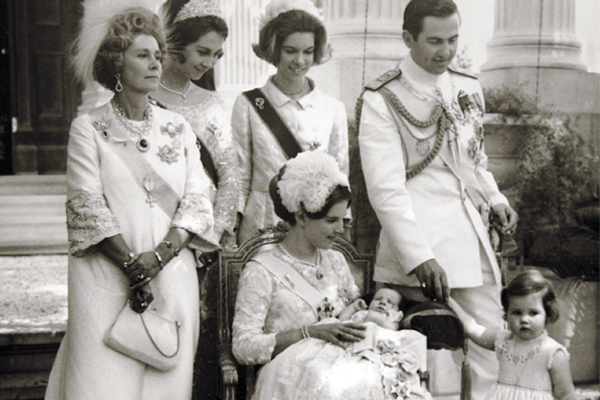The publication of his diaries recovers the figure of the monarch, who died in Spain after a plastic surgery and who played in the Hitler youth
Queen Sofia's secret talent
Federica de Grecia (1917-1981) was not only the mother of Doña Sofía, current Queen emeritus of Spain. Perhaps he was also the last representative of those European monarchies who attended the final collapse of the old regime. Born Federica de Hannover, granddaughter of the last German emperor (William II) , became queen consort of Greece after her husband ascended to the Hellenic throne as Paul I. He lived World War II, the exile caused by it (in South Africa and Egypt) and, above all, the civil war that ravaged Greece between 1946 and 1949 . After the death of her husband, in 1964, her son Constantine inherited the Greek crown, although a military coup in 1967 would end up assuming the end of the monarchy in Greece and pushing its components into exile. Installed in Spain, together with Sofia, Federica died in Madrid after an intervention of cosmetic surgery .
This week the imminent publication of Federica's diaries was discovered, discovered in 2017 by the historian Costas Stamatópulos, and which include agendas and accounting books of the monarch.
His study will complete the historical portrait that Federica herself began in 1971 with her memoirs, published in Spanish in 2006 by The Sphere of Books. In them, Felipe VI's maternal grandmother tells of her childhood in Germany, where she was part of the Hitler Youth until her father sent her to the United Kingdom, where she met her husband, who in the book calls with the affectionate nickname of 'Palo '.
In addition to telling the most convulsive moments in the recent history of Europe, Frederick's book leaves reflections on politics and chronicles of the social life of the time.
De Sofia, for example, says that "it was always the joy of the house" and tells the moment when the future Juan Carlos I asked for his hand. "Palo and I loved it and we were horrified by the news," Federica writes. "We loved it because Juanito, as we call him familiarly, is very handsome and handsome . He has curly hair, which bothers him, but we like older ladies like me a lot. He has dark eyes, long eyelashes, is tall and athletic and changes from time to time and how he wants his personal charm, "he describes. "But the most important thing is that he is intelligent, has modern ideas and is kind and friendly. He is very proud to be Spanish, but he has enough understanding and intelligence to easily forgive others' offenses and mistakes."
"We were horrified," he continues, "not because he disliked us personally, but because he is Catholic, we knew that before he got married there would be tremendous discussions on this issue." Already at the wedding, held in Athens in 1962, feelings were found: "For the first time in our lives, the whole family took tranquilizers, because we did not want to be sad on that happy day. But Sofia left us."
During World War II, Hitler invaded Greece and applied his extermination plans to the Jews there. The anti-German sentiment ignited and Federica became suspicious. As a defense, the monarch said : "I realized the hatred I have for Hitler. What right do you have to create a New World Order that nobody wants? By that New Order the most flourishing cities are destroyed and endless human lives are sown. . " However, it was not the main objective of his anger. The civil strife in his country of adoption, between communists and nationalists, made him develop a hatred of the former.
"Totalitarian systems - Nazism, fascism and Marxism - start from a materialistic philosophy, but they preach to young people an apparently pure idealism. They do not offer them better hotels, houses or swimming pools, but teach them to sacrifice for the State and convince them to that only the destruction of the old systems will allow the construction of the new ideal human society. Results of this theory are usually fanaticism and immense suffering, "he reflects on the pages of his autobiography.
Thus, he says of communism that it is "a great danger to the world," and "the corrupter who takes advantage of the torments of his fellow men in cold blood." Committed to a foreign country, "you are willing to betray yours."
"When I speak of communists and communism throughout these pages," he says at another time, "I do not try to dehumanize those who made our hearts bleed, whom we wanted to help even if we had to fight them before. What I mean is to the men and women of the heart of ice who sold and sold their humanity . "
Accused of interference in Greek politics , Federica lived primitive escraches in London by exiled communists, whom she accuses of discrediting her: "Communism, which feeds on poverty and misfortune, had to consider how much we did to overcome it, as a thorn in his flesh. "
According to the criteria of
Know more

